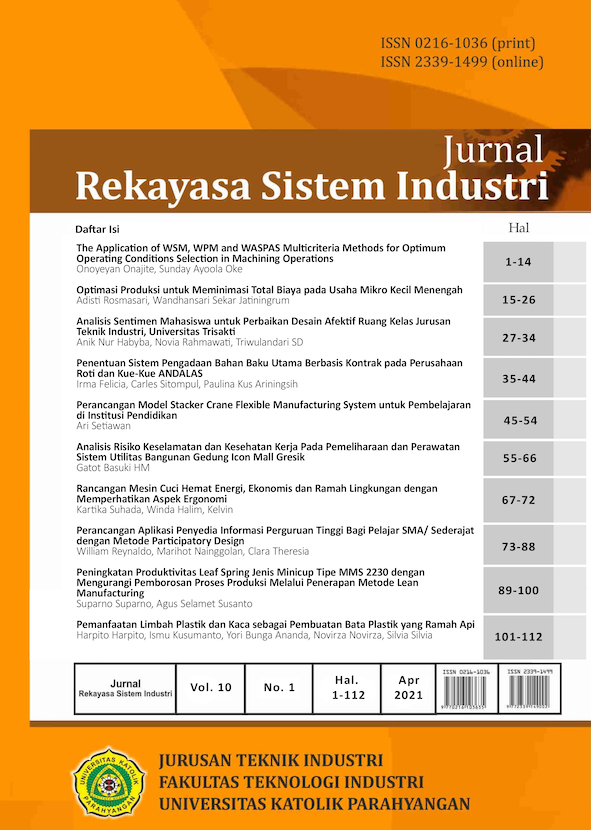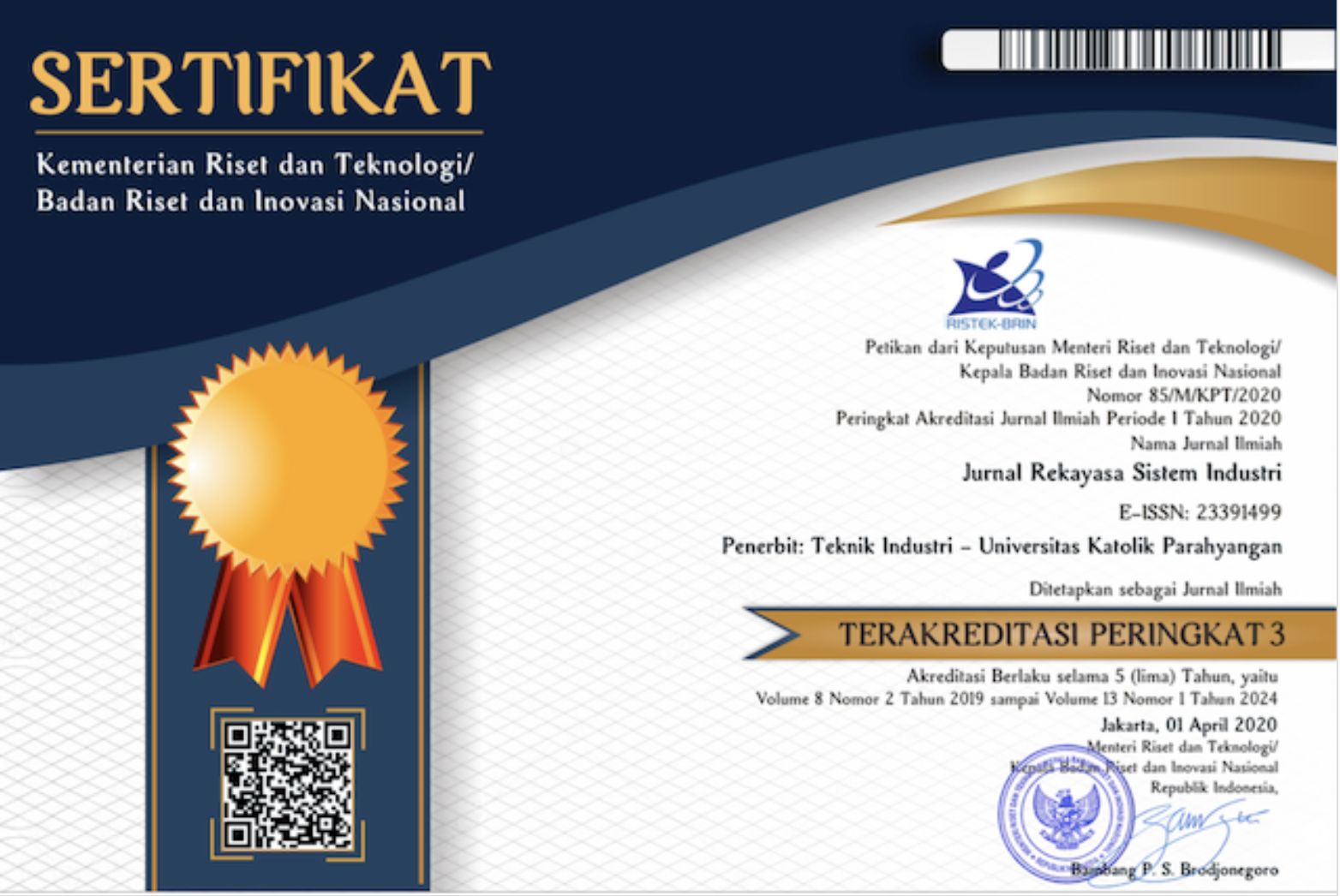Rancangan Mesin Cuci Hemat Energi, Ekonomis dan Ramah Lingkungan dengan Memperhatikan Aspek Ergonomi
DOI:
https://doi.org/10.26593/jrsi.v10i1.4396.67-72Abstrak
Currently, the process of washing clothes is a commonly process that carried out in a household. To save human energy and washing time, a washing machine is used. There are a lot of washing machine models on the market, but in general the existing washing machine have standard functions, use electrical energy, quite expensive, and use materials that are less environmentally friendly. Based on these various shortcomings, it is necessary to design an innovative washing machine. The method used in this research is the concept of product design starting from seeing the needs to develop the desired product concept until making a product prototype. The washing machine designed in this study can be used to wash all types of clothes weighing 3 kilograms and is equipped with clothes drying device with a capacity of 20 clothes that rotates during the washing process, so it will speed up the drying process. In addition, the materials used come from secondhand goods, so the price is economic. This washing machine is not designed use electrical energy but kinetic energy, so it is environmentally friendly and can be also used as an exercise tool that can the user's body keep healthy and ergonomic when used.
Referensi
Andira dan Dadang Wiratmoko (2018). Pengembangan Produk dan Analisis Kelayakan Bisnis Alat Bantu Mencuci Clean Washing MC Sebagai Pengganti Sistem Kerja Mesin Cuci. Jurnal Ilmiah Teknik Industri, Vol. 6 No. 3, 174 – 184.
Barthel, Dr. Claus and Thomas Götz (2013),Technical background and design options to raise energy efficiency and reduce the environmental impact of domestic washing machines. Wuppertal Institute for Climate, Environment, and Energy.
Bridger, Robert S. (2000), Introduction To Human Factor and Ergonomics (4th ed.), Taylor And Francis CRC Press, Boca Raton.
Cross, Niegel (2000), Engineering Design Method (3th ed.), A John Wiley & Sons, Inc. Publication. Hoboken, New Jersey.
Emagbetere et al (2017). Design and Development of a Low Cost Washing Machine Suitable for Polythene Material, Asian Journal of Current Research 2(1): 22-32, International Knowledge Press.
Herro, dkk (2011). Perancangan Chip dan Simulasi Sistem Mesin Cuci Pakaian dengan Fuzzy Logic Pada Mikrokontroler, Tesla Vol. 13 No. 2.
Moncivaiz et al. (2010), Movilavadora 2.722 D-Lab : Design. MIT
Mushiri et al. (2017), Design and Fabrication of a Pedal Powered Washing Machine, Bogota, Colombia. Proceedings of the International Conference on Industrial Engineering and Operations Management. 355-366.
Nurmianto, Eko (1996), Ergonomi Konsep Dasar dan Aplikasinya, Edisi Kedua, Guna Widya, Surabaya.













